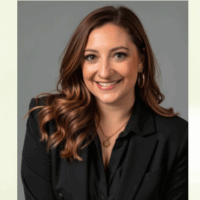
Joe Stephenson, CAMS, vice president and Financial Intelligence Group senior coordinator at S&T Bank, spoke with the ACAMS Pittsburgh Chapter Board about his career, recent developments in anti-financial crime (AFC) and other related topics. As the supervisor for the fraud team, his main responsibility is oversight of the team, which conducts all fraud and suspicious activity investigations at the bank. Stephenson has been employed at S&T bank since November 2014. He has been a Certified Fraud Examiner (CFE) since March 2014 and a Certified Anti-Money Laundering Specialist (CAMS) since July 2016.
ACAMS Pittsburgh Chapter (APC): How do you stay updated on the latest developments and best practices in financial crime prevention?
Joe Stephenson (JS): I believe hands-on investigative work is the most practical way to stay up-to-date on the latest developments. I love being actively involved in the investigative role to learn and understand how criminals operate and then how to subsequently counteract their efforts. However, there are so many other resources and avenues to continue learning and S&T Bank encourages us to take advantage of career development opportunities such as webinars, training sessions, certificates provided by ACAMS (and other professional organizations), news articles, books, connections via LinkedIn and more. I am also a member of the Community Bankers Association Fraud Management Committee and participate in other working groups. Collaboration and communication within our AFC industry is vital to staying updated and remaining effective.
APC: How do you manage stress and maintain a work-life balance in such a demanding field?
JS: It has been a learning experience throughout my career. It’s easy to take this work home with you at times and there’s also the fact that this type of work is never truly complete. Early in my career, I may have struggled more with that since I’m a bit of a perfectionist and I always want the job completed. So, I have learned how and when to prioritize and separate work from my personal life as I have progressed in my career. Outside of work, I am dedicated to my family―my wife and two young daughters. Traveling, going to fun places and just spending time with them helps maintain the much-needed balance. My faith is also extremely important to me and I am an active participant in our church. Lastly, I’m a big sports guy, so whether it’s playing or watching various sports, that has been an outlet for my entire life. In addition, S&T supports a healthy work-life balance and ultimately, my family, faith and hobbies give me perspective and prevent me from being bogged down by my professional duties.
APC: What led you to a career in AFC and compliance? What personal qualities or experiences have shaped your approach to financial crime prevention?
JS: I obtained my bachelor’s degree in criminology with a concentration in forensic accounting in criminal investigations from Mount Aloysius College, so college was the origin of my interest in the field. However, I truly didn’t know the depth of this industry for many years. It was not until a few years after graduation when I was working in the casino surveillance field that a Pennsylvania State Trooper, with whom I worked alongside, encouraged me to obtain a credential. That, along with some other twists and turns along the way, propelled me to where I am today in banking. Shortly after I joined S&T, I also obtained my CAMS certification.
As far as personal qualities, I believe I have become adaptable, agile and extremely effective at multitasking and prioritizing. Whether it’s the criminals’ modus operandi, technology, regulations or any other factors, this field is ever-changing and fast paced, so you must be able to keep up to be effective. My experience has also taught me to be empathetic, yet skeptical. I always try to stay grounded in the fact that this work involves human beings which can evoke a lot of various emotional responses, so I try to respect and understand all perspectives equally. At the same time, I cannot always believe what someone says. I approach financial crime prevention with the appropriate amount of professional skepticism, which will lead to successful investigations and the possibility of identifying the needle in the haystack that may have been missed elsewhere.
APC: What trends or emerging threats in financial crime are you currently keeping an eye on?
JS: Stolen mail may not qualify as a trend anymore since it’s been happening at such a large scale for so long now, but it continues to be a major problem in financial crime. For the last few years, mail being stolen has led to countless individuals’ personally identifiable information being compromised and an incredible surge has occurred in check fraud. I know artificial intelligence is everyone’s favorite topic and the hot item right now, and I will keep my eyes on that as well, but we can’t overlook the fact that criminals are still utilizing basic/old tactics to commit fraud. Fraudsters are still succeeding at a large scale with things such as check fraud and social engineering. It’s an unfortunate reality we live in that we must educate people to truly not give their blind trust to anyone or anything on the surface. I advise everyone I know not to send anything of importance, especially checks, in the mail unless necessary. From the social engineering standpoint, fraudsters are equipped with knowledge, information and technology to make their schemes extremely convincing. Their usage of emotional and psychological manipulation as well as scare tactics and threatening language is a concern. Consumers are being targeted by fraudsters at unprecedented levels, and it is becoming a battle between the “good guys” and “bad guys” and who the consumer is going to ultimately believe is telling the truth.
APC: What do you find most rewarding about working in the AFC field?
JS: Being on the good side and knowing that our work is making a difference in the lives of our employees, customers and communities makes my work fulfilling. Although I do have to admit it can be defeating and demoralizing sometimes because not all cases end positively, I want to be an optimistic person that sees the glass half full. Ultimately, the goal of any AFC professional should be to disrupt criminal activity and keep funds out the criminals’ hands. Whether that involves stopping a scam, disrupting a money laundering operation, identifying potential human trafficking, assisting an elderly consumer from being financially exploited or any other positive result of the variety of investigations that may come across the desk as an AFC professional, it goes back to the human aspect. There are people involved on both sides of the equation, so in the most basic terms, the reward is when the good guys win and the bad guys lose.
APC: When you are off the clock, what is your favorite way to give back to your community?
JS: I do have to give a shoutout to S&T Bank in this regard, because it’s not just off the clock when I am able to give back to my community. As an employee of S&T Bank, I am provided with 16 paid hours annually for community service which is awesome. I am a regular platelets and plasma donor through the American Red Cross and although I try to give back to my community in a variety of ways, this has become my most consistent activity. One positive aspect of the COVID-19 pandemic for me was discovering this need and becoming a regular donor. Previously, I had been a blood donor; however, for the last five years or so, I have also donated platelets and plasma every month. I’m fortunate to be eligible, but it’s just a simple way to give back. Donations are essential to surviving and fighting cancer, chronic diseases and traumatic injuries―just a few hours of my time could potentially make the difference of a lifetime for someone else.
APC: What keeps you motivated in the ever-evolving AFC field?
JS: It goes back to the question of the rewarding aspects of the field―fighting for the good guys and finding ways to combat the criminals. Knowing how determined and organized the criminals are motivates me that much more to step up our prevention efforts. I know I’ve stated this prior, but my motivation is the people. Finances are an extremely important and vital part of a person’s life, so by being in this field, I want to protect those finances. I have a strong desire to protect S&T Bank and our customers from various risks that could have potentially damaging effects. In simple terms, I am motivated to do the right thing, every single day.
APC: How do you collaborate and partner with other departments or organizations to enhance financial crime prevention efforts?
JS: This is an important question as partnership and collaboration are crucial in today’s world overall for financial crime prevention. It can’t simply be the job of financial institutions, law enforcement or professional organizations―it has to be everyone working together. Financial crime is rampant because the criminals are organized, so we must be as well―both internally and externally. Internally, I believe we win as one team by understanding all perspectives. As AFC professionals, we must effectively communicate what we are trying to achieve and acknowledge that we cannot do it by ourselves. When you create that atmosphere of teamwork, you achieve better collaboration. Externally, awareness and education must be paramount, so again, for that to be successful, it takes a team effort. It’s about finding more ways to reach more people. We all know that prevention is crucial because it makes our lives a whole lot easier than trying to repair any damage after financial crime has already occurred. So, for this to be successful, our communities must be provided with education and knowledge. The more equipped people are at identifying red flags, reporting unusual activity, etc., the more financial crime will be prevented. I don’t think it needs to be overly complicated either―it simply needs to be talked about more frequently.
ACAMS Pittsburgh Chapter Board










